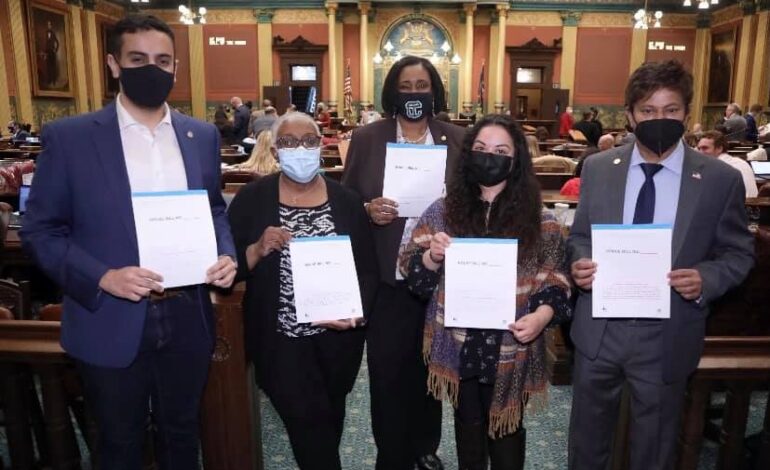LANSING — In an effort to address exacerbated conditions faced by Michiganders since the onset of the COVID-19 pandemic, State Rep. Abraham Aiyash (D-Hamtramck) and four other Detroit first-term House colleagues introduced a five bill package this week.
Aiyash joined Mary Cavanagh (D-Redford Twp.), Helena Scott (D-Highland Park), Shri Thanedar (D-Detroit) and Stephanie Young (D-Detroit) to introduced the package to tackle the public health and economic effects of the pandemic that persist within the Detroit community.
Over the past month, hospitalizations in Michigan hit an all-time high and Wayne County reported the most new cases it’s ever had in a single day. The bills focus on small business owners, frontline workers and families.
Aiyash’s bill would reform the state’s Unemployment Insurance Agency (UIA) formula so that people can earn up to half of their weekly unemployment benefits through temporary or part-time work before their benefits are reduced.
“I’ve spoken to many business owners, particularly restaurant owners, who have employees that would like to come back to work, but recognize that because of fewer available hours would earn less than their unemployment benefits,” Aiyash said. “This bill will incentivize people to work as the economy opens up, while allowing them to still collect unemployment benefits so they can pay rent and meet their family’s needs.”
Young’s bill establishes a moratorium on the sale of a storage unit renter’s possessions until six months after the COVID-19 pandemic ends. Cavanagh aims the state’s pandemic-related flexible work share program, which will help prevent layoffs in times of high unemployment. Among other changes, if the unemployment rate in Michigan is at or above 8 percent, the bill would allow the UIA to approve an employer’s participation in the work share program regardless if they have met all requirements.
Thanedar’s legislation would allow small businesses to be reimbursed up to $25,000 of their costs of purchasing personal protective equipment, while Scott’s bill provides frontline workers with a $500 tax credit if they were employed at least part-time in an essential industry between April 1 and June 30 of last year.






Leave a Reply